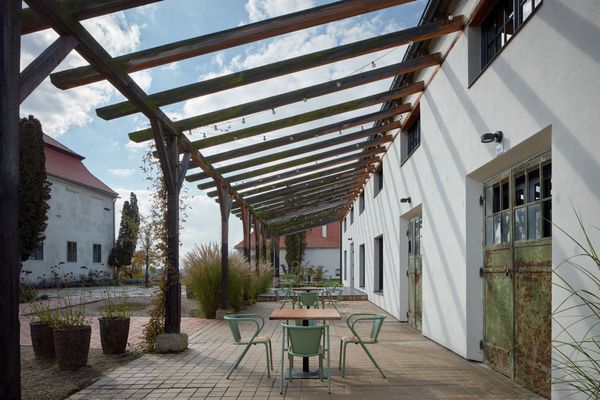Warsaw is not Budapest. Not in old buildings and historical beauty, certainly, but not in the startup sector, either. The Polish startup sector is the most developed in the Central and Eastern European region, while Hungarian startups are underperforming in a regional comparison. Although the Hungarian startup ecosystem has shown growth and development in recent years and Budapest has developed a vibrant startup community, the Hungarian startup market faces several challenges. Our analysis and report from Budapest.
A series of Hungarian shortcomings
One of the biggest drawbacks of the Hungarian startup scene is the size of the ecosystem and the resulting limited market opportunities. Hungary is a smaller market than Poland, so Hungarian startups often need to penetrate foreign markets to get the necessary customer base and investment, which is not an easy task. International expansion is difficult from a Hungarian perspective, mostly due to the lack of an expert network and international investor relations.
Another issue is the labor market, which has not been helped by the Ukrainian workforce fleeing the war. Hungarian universities are doing a great job of training young people with outstanding talent, but retaining talented professionals and attracting them to start-ups may be a problem. The Hungarian start-up sector faces strong competition from multinational companies offering higher wages and better working conditions. There is also a brain drain, which leads to the emigration of talent—a clear drawback.
Another Hungarian phenomenon is the lack of investor support, in particular early-stage financing. Although there are investors and venture capital funds in Hungary, early-stage start-ups often have difficulties in obtaining seed funding due to the low willingness to invest and therefore many young companies face difficulties in raising growth capital.
There are also differences in business culture and entrepreneurial attitudes, with Hungary having more traditional entrepreneurial values and a lower willingness to take risks, which hinder the growth and development of Hungarian start-ups.
Poland has a lot to teach us
If we compare Hungary with Poland in terms of the startup sector, we can certainly draw some conclusions. The Polish startup ecosystem may be bigger and more dynamic due to the country’s size and economic potential, with a customer base of nearly 40 million people, which may help international expansion and growth, as those who can easily manage in the fifth most populated country in the EU will not have any problems growing internationally.

As a result, Poland has also developed a stronger environment for venture capital investment and early-stage finance, providing easier access and more opportunities for start-ups. The Polish government and the business community are also actively supporting start-ups, and a number of initiatives and programs have been launched to support them. Poland has several government support programs for start-ups, especially in the early-stage sector. Startup Poland and the Polish Agency for Enterprise Development (PARP) offer programs providing financial support, mentoring, and business infrastructure to early-stage companies. In parallel with a favorable investor environment, the number of incubator houses is growing: cities such as Warsaw and Krakow have an active start-up community and attract investors and talented entrepreneurs.
While both countries have talented professionals, Hungarian startups face more competition from multinational companies to retain and attract talent, while Poland has a particularly strong talent base in the IT sector and Polish universities offer excellent training. This is one of the most important factors for the startup market.
The University of Warsaw offers a wide range of IT courses in areas such as computer science, data science, artificial intelligence, and software design. Warsaw University of Technology offers courses in IT engineering while having extensive and advanced research centers and collaborating with related industries. In the field of IT education in Poland, universities provide high-quality education and a strong academic research environment that contributes to the training of talented IT professionals, and this is reflected in the numbers: IT education at Polish universities is in the TOP500 in all global rankings, with the most promising IT environment in Poland in the region after Estonia and Lithuania. And when IT is booming, start-ups are booming, as the majority of these companies are in the IT sector.
The comparison suggests that Hungary should work to strengthen the ecosystem, develop more market opportunities, and support young businesses by helping them to raise finance, expand internationally and retain talent.
Fighting the multinationals for survival, money, and opportunities
The drain of talented professionals and young entrepreneurs by large multinationals or opportunities abroad is particularly interesting from a Hungarian perspective. If we look at the problem in depth, the potential for salary and promotion is striking. After all, multinational companies offer higher salaries and better career prospects for talented professionals. Not surprisingly, Hungarian start-ups do not always have the financial resources to offer competitive salaries and opportunities. Another important element is that Hungarian society is fundamentally conservative, and start-ups are associated with higher risks and face the possibility of failure. This uncertainty may steer talented young people towards established and stable companies. The cherry on top is that multinational companies tend to offer better working conditions and benefits. The fact that some talented young Hungarians tend to pursue their careers abroad cannot be ignored. EU membership is a huge opportunity, and in a globalized world, a significant number of talented Hungarians are leaving for abroad, which poses a significant challenge for Hungarian start-ups, because, after a while, they run out of working brains.

A significant proportion of these problems can be easily fixed with three things: money, money, and money. But the Hungarian investor market is less risk-tolerant than the start-up market. Investors often prefer to invest in more traditional and solid businesses with a well-established business model and stable revenues—everyone wants to make money, and an early-stage startup is not guaranteed a successful return. There is also a lack of investor experience, and the risks and challenges associated with start-ups are less familiar or understood by investors, which is a discouraging factor.
Although there are public support programs in Hungary, they are generally not focused on early-stage funding and are very limited. State aid tends to target established companies. This has been recognized by the Hungarian government, which has sought to develop the ecosystem: in recent years, a number of initiatives and programs have been launched to support start-ups—incubator houses, mentoring programs, and competitions—but no major breakthroughs have been achieved.
How to achieve effective change?
Hungary is located in the heart of Central Europe, Budapest is a metropolis of two million people, and education is relatively well developed—so it is not impossible to break out. But what would it take? On the one hand, we need to strengthen the investment climate, especially for early-stage financing. Tax incentives, support for venture capital funds, and incubator programs can also help to strengthen the investment climate. It is also important to support priority industries such as IT, health technology, agritech, and artificial intelligence. The state should provide strategic support and mentoring programs in these industries to help start-ups innovate and reach the market.
There is no getting away from developing international relations and promoting exports. The state must support initiatives that help to build international relationships and access international markets. It is time to start working on trade delegations, it is time to support the development of foreign business contacts and international start-up events because this leaves an international footprint. We also need to support knowledge transfer and university-industry cooperation to put research results and innovation into practice. Promoting university incubators, mentoring programs, and research funds can help unlock the talent and resources available to start-ups.
Last but not least, a change in the entrepreneurial culture is needed: fostering innovative thinking should start in the education of the younger generations, developing entrepreneurial and innovation skills in educational institutions, and providing mentoring programs and practical experience for young entrepreneurs, no matter how challenging.

Andi Gáldi Vinkó’s photography book wins prestigious international award

Former ceramics factory turned guesthouse and event venue










